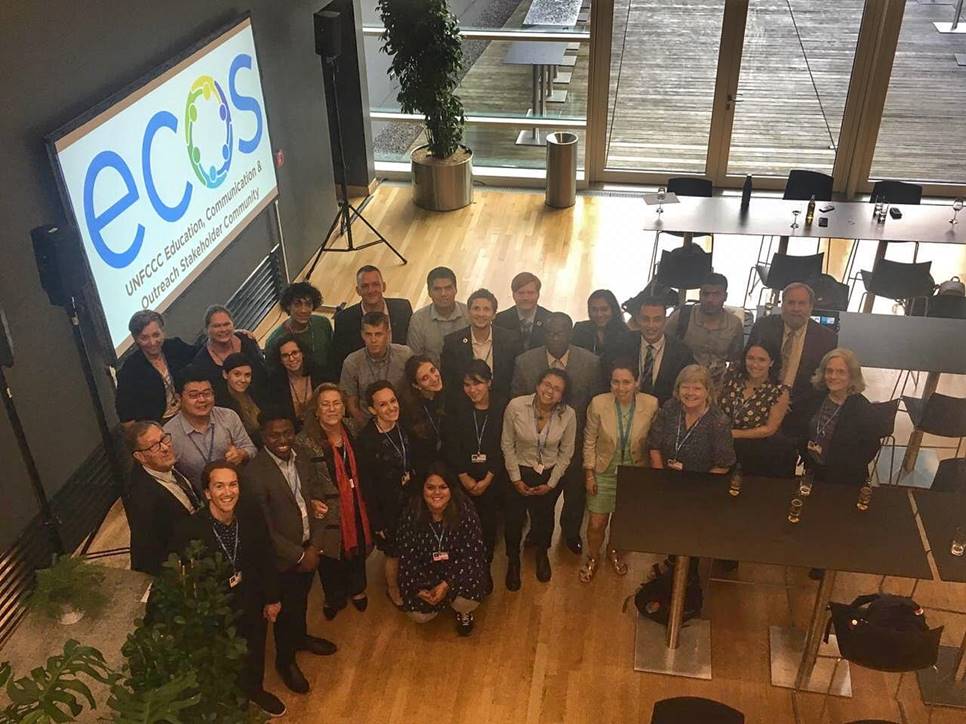
ECOS Context, Rationale, and Organizational Guide
Context
The Education, Communication, and Outreach Stakeholder Community (ECOS) was formed in 2016 as a community officially recognized by the United Nations Climate Change Secretariat. ECOS supports effective, innovative efforts to build the capacity of individuals, communities, and organizations (both non-government and government) to make informed climate decisions.
As a “network of networks”, ECOS aspires to become a forum and clearinghouse for those involved with Action for Climate Empowerment(ACE), the original goals of Article 6 of the UNFCCC, which call for public involvement in developing meaningful and constructive responses to climate change, and the Doha Work Programme,which is set to complete in 2020.
In addition, ECOS aims to serve the needs of communities and organizations that are involved with climate literacy and information but are outside the United Nations process. ECOS activities and goals and the products and services offered will evolve over time, but initially the ECOS community is dedicated to identifying and supporting existing efforts to build capacity for climate action by identifying effective practices and addressing key opportunities and constraints.
Rationale
The original vision of the United Nations Framework Convention on Climate Change (UNFCCC) was very people-focused. In Article 6 of the Convention, renamed “Action for Climate Empowerment” or ACE in 2015, the parties agreed that education, public access to information, training for relevant professionals, and international collaboration and cooperation would allow the public to be directly involved in developing adequate responses to climate change.
But many parties have been limited to their response to fulfilling their commitments to inform and engage the public and professionals, and efforts to build literacy and the capacity for people to make informed decisions was left largely to motivated individuals and organizations to tackle on their own, often with little support.
While there have been some important success stories, they have been the exception rather than the rule. ECOS aims to support the UNFCCC Secretariat and its ACE efforts and focal points, as well as other stakeholders and enthusiasts working to build capacity for public engagement and informed climate action.
A survey conducted in 2018 by ECOS found that the highest priority of the climate education, communication and outreach community is funding, which is an urgent need to nations, communities and individuals seeking to build community capacity to take informed climate action.
ECOS is currently exploring the potential for a Climate Literacy & Engaged Action Response (CLEAR) Fund to help communities around the world develop community-based climate education, communication and outreach engagement and action partnerships and initiatives.
